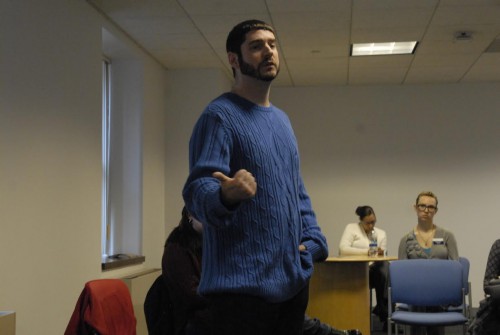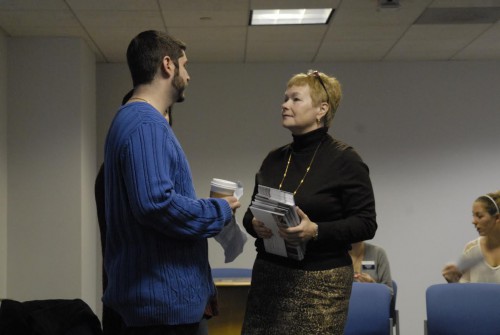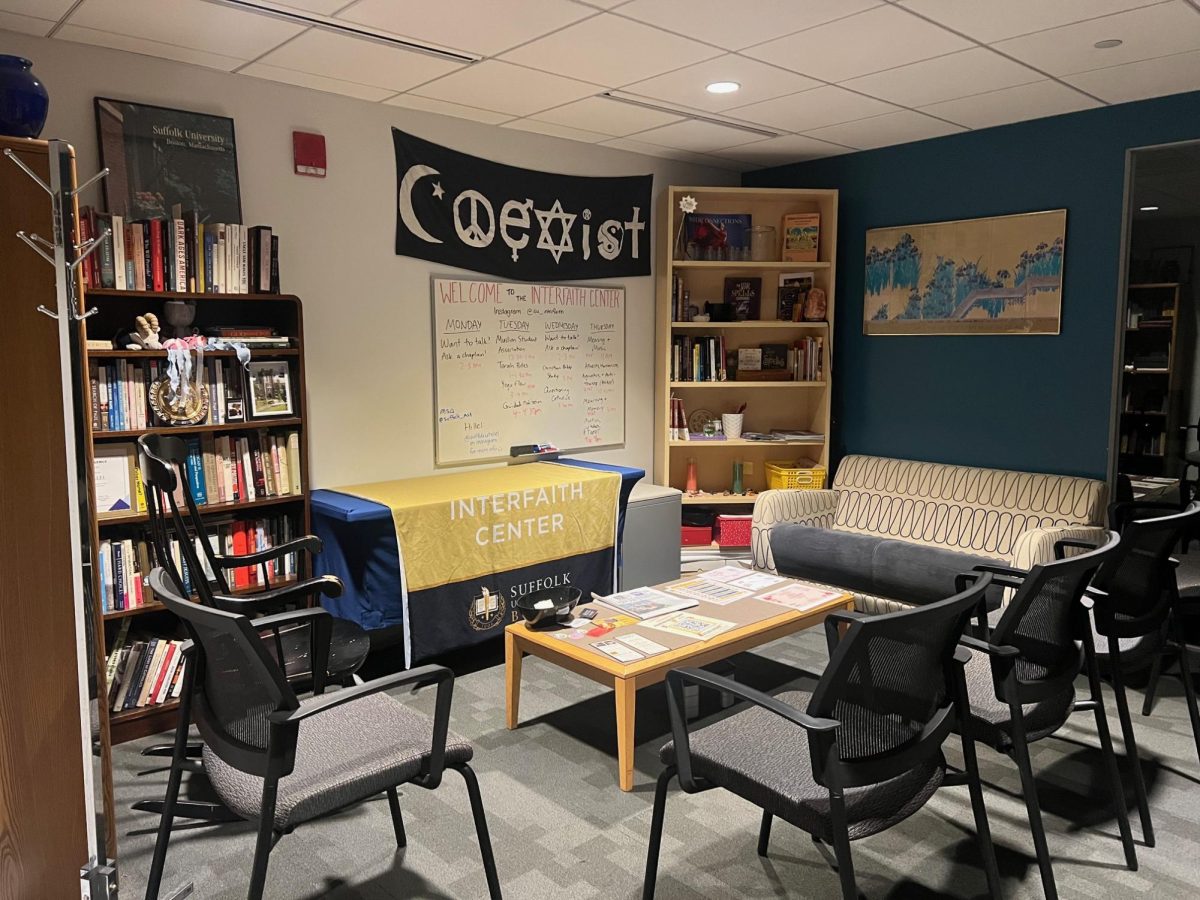By Brigette Carreiro
At the center of a semicircle of chairs on the ninth floor of 73 Tremont sat Suffolk alumnus and rape counselor Robert Uttaro, with legs crossed, gripping a coffee. As students slowly started filing in, he shook hands with everyone, introducing himself in his thick Boston accent and thanking them for attending his talk, “Voices Against Sexual Assault.”
The talk was the second installment in a newly introduced Speaker Series held by Sawyer Library, and featured Uttaro and a friend of his, Rebecca, whom he only referred to by first name and brought to share her personal story.
Uttaro began by urging the audience to keep the atmosphere inviting and comfortable.

“Sexual assault and rape is a very difficult conversation to have,” he said. “You’re not chained here. If something makes you uncomfortable, take off.”
Uttaro then asked the audience members to stand, listing a series of questions regarding their knowledge of people who have been sexually assaulted. Questions included if the audience personally knew anyone who had been victims of assault, and if so, if the perpetrators had been incarcerated. Audience members sat down if the questions did not pertain to them, creating a visual of how many people knew victims of sexual assault. Numerous people remained standing, as most audience members did personally know assault survivors. In a somber tone, Uttaro had the audience reflect on the exercise, pointing out the prevalence of sexual assault and rape is.
Turning the mood in the room around, Uttaro cheerfully began telling the story of his history as a Suffolk student and becoming a rape counselor.
“I didn’t come to college with the ambition to become a rape counselor,” he said.
Uttaro explained that after watching a video about rape and sexual violence in one of his courses as a criminal justice major, he felt “disgust and anger” and wanted to make a change.
He volunteered in rape counseling centers and worked in the management offices until officially becoming a counselor himself.
In an anecdote, Uttaro recalled how life-changing his first time sitting in on a call with a survivor was.
“The counselor treated [the caller] with such empathy and compassion,” he said. “That one call taught me a lot about how to talk and listen to people.”
On his newly published book, “To the Survivors,” Uttaro said it is now being featured in counseling centers all around Massachusetts, and that counselors believe his writing can ultimately benefit staff and survivors.
“The book is full of real stories of real people, showing people what is happening, how it affects [rape survivors], but also how you can grow from it,” he said.
Rebecca then stood up to speak. With a shaky voice, she described her story of sexual assault and how she has dealt with the aftermath. “It changes the way people look at you,” she said. “They look at you like you’re broken.”
Stressing his thoughts on self-blame, Uttaro offered his ideas on how to help those who have suffered from sexual assault or rape.

“People feel this shame because of what they experience. Some people feel like they’re stuck in these chains and they can’t get loose,” he said. “The most important thing we can do is believe them.”
Uttaro closed by asking the audience to approach those who have dealt with sexual assault by invoking what he called the principles of “B.L.E.S.S” – belief, listening, empathy, safety, and support.
“I can’t stress enough that all of your voices are powerful,” he said.


















